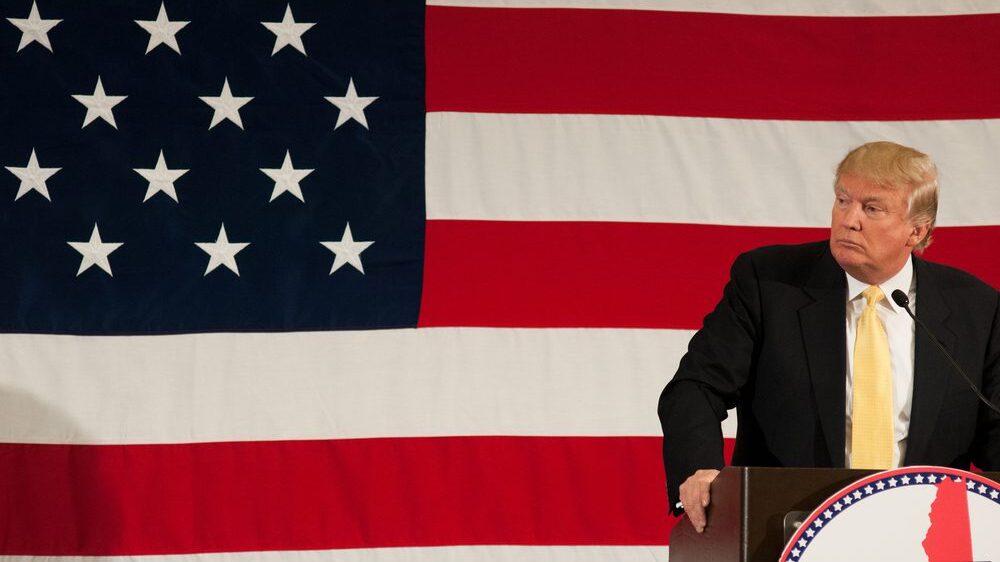
President Donald J. Trump.
Photo: Andrew Cline / Shutterstock.com
Donald Trump’s focus lies on “America First,” but interest in the past week of legal ordeals surrounding the former president has extended far beyond the U.S. The arrest in Manhattan on Tuesday and 34 felony charges of falsifying business records attracted “the eyes of the [American] nation and the world” in what German tabloid Bild described as “perhaps the greatest political legal drama in US history.” Few are likely to have been surprised by Mr. Trump’s take on the affair, which he branded “an insult to our country.” But what of the European press?
The front page of Wednesday’s La Stampa, the Italian daily, perhaps came in strongest, describing Trump—in fairly Trumpian language—as “The Conspirator.”
Buongiorno! Ecco la prima pagina di oggi, 05/04/2023. Gli aggiornamenti su https://t.co/x3RjqbDFRw https://t.co/TrufcjVR8w pic.twitter.com/xjIS7k5RG7
— La Stampa (@LaStampa) April 5, 2023
Reports have focussed largely on what the former president looked like during both his time in court and, later, before his supporters at Mar-a-Lago. (Commentary even on such a minor point as this seems to reveal the instincts of those behind the keyboards.) In Italy, one la Repubblica writer described Mr. Trump as appearing “serious and defiant” before a judge, while another mocked the “disappointed, tired, worried Donald Trump who has returned to speak to his people” at his own residence. La Stampa agreed that he was “tired,” citing “anger” as “the proof,” as displayed during the Mar-a-Lago speech which was “all attack, filled with old accusations, fake news, personal attacks.” Reporters in the UK were far more complimentary, insisting Mr. Trump’s “choreographed rally-style appearance” was “defiant” (The Daily Telegraph) and full of “swagger” (The Times). The Telegraph added that the presidential hopeful was on form during his speech, which saw Mr. Trump “revisiting many of his favoured claims about his political rivals,” and even “rail against the judge,” despite being ordered to moderate his language.
On the more serious point of what all this means for Mr. Trump’s 2024 election bid, hacks were less confident in their language. Really, it is too early to know—much more is yet to happen in the legal proceedings. Sarah Smith, the BBC’s North America editor, commented that
Even for a politician with as much bravado as Donald Trump, fighting a presidential election at the same time as one or more criminal court cases will be more than a little complicated.
The tone of the French daily Le Figaro was equally uncertain, emitting simply that “this image could have significant media repercussions. But not necessarily to the detriment of Donald Trump.” Die Welt was willing to go further, suggesting that the legal challenge could work in Mr. Trump’s favour. The paper reported that “financially, the legal saga has already paid off,” given the $10 million boost to the former president’s campaign to re-enter the White House, adding that all is also “well in the race for the Republican nomination,” with 48% of party members wanting to vote for Mr. Trump (up from 44% last month).
Belgian daily Le Soir appeared less concerned about the former president’s future than events happening now, expressing “relief” that the arrest of Mr. Trump, whose name “is synonymous with an earthquake,” did not lead to a wave of violence on the streets.
Surprisingly few have commented directly on the former president’s character and whether these proceedings are deserved or, as Mr. Trump argues, a sign that the U.S. is “going to hell.” Bild columnist Franz Josef Wagner broke away from this rule, arguing that “Trump paid her [Stormy Daniels] hush money because a man who wants to be president cannot tolerate talk.” He added: “What a trial! Porn Star vs a Former President! What honour does a president have, what honor does a porn actress have?” Nayib Bukele, president of El Salvador, also accused, in no uncertain terms, Joe Biden’s government of arresting its “main opposition candidate,” jibing that “the United States’ ability to use ‘democracy’ as foreign policy is gone.” Hungarian Prime Minister Viktor Orbán had already urged “Mr. President” to “keep on fighting.” Most other leaders have, however, stuck to Mr. Biden’s approach of laying their “focus” elsewhere—in public, at least.
